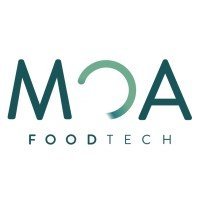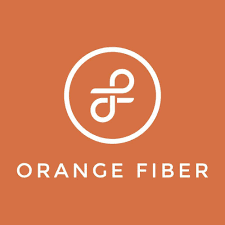The concept of the circular economy stands at the forefront of sustainability, with a mission to curb waste and optimize the use of existing resources. It’s about “closing the loop” on various elements, like products, services, waste, materials, water, and energy. Unlike the linear economy, the circular economy introduces a nonlinear model that champions reuse, recycling, and regeneration. This innovative approach aims to slash waste generation and alleviate the strain on our natural resources. The circular economy isn’t just about bolstering environmental sustainability; it’s a catalyst for economic efficiency by sparking business opportunities around product revaluation and responsible resource management.
In the food sector, the circular economy translates into cutting down food waste across the entire chain, from production to consumption. It encourages repurposing byproducts and transforming waste into valuable resources, such as creating compost or harnessing energy. Local production models and regenerative agriculture take the spotlight to shrink our environmental footprint. Additionally, the sale of imperfect or soon-to-expire foods is promoted, combating premature disposal. In this paradigm, consumers become key players, making informed choices to minimize waste within their homes.
The Shift to Circularity – Why is the linear economy undergoing this transformation toward circularity?
The answer lies in the pressing environmental and economic challenges that have arisen from the linear model’s disregard for sustainability. The circular economy offers a promising solution, advocating for efficiency, longevity, and the preservation of vital resources. It is an acknowledgment that a thriving society hinges upon a holistic equilibrium with our planet.
Key Principles of Circularity
At the heart of the circular economy lie four guiding principles: reduce, reuse, recycle, and regenerate. These principles converge to challenge the traditional linear production-consumption paradigm and pave the way for a circular shift, where the value of products and materials is extended through sustained use.
- Reduce: A conscious effort to use resources more judiciously, curtailing the excesses of production and consumption.
- Reuse: The revival of objects for their original function or other purposes, essential to the circular economy’s mission of multiple lifecycles for products.
- Recycle: A transformative process that turns waste, raw materials, and byproducts into fresh products, reintegrating them into the cycle of utility.
- Regenerate: A commitment to rejuvenate natural resources and ecosystems, restoring balance by replenishing what has been utilized.
5 Startups: Pioneering Circular Practices and Innovations
MOA FOODTECH
MOA, is a Spanish forward-thinking startup, that embodies circularity by up-cycling food by-products through innovative methods. Functioning as a B2B platform, they leverage food by-product valorization using optimized fermentation, aided by their in-house artificial intelligence tool. They use food production waste and by-products as essential resources for their fermentation process, introducing a novel protein source abundant in nutritional value while significantly minimizing resource consumption. Leveraging biotechnology, they craft sustainable ingredients that optimize the efficiency of protein generation, showcasing a commitment to eco-friendly production methods. This process not only curtails waste but also champions sustainable ingredients that substitute animal and plant-based proteins. By reintroducing these ingredients into the food chain, MOA reduces both resource extraction and the environmental repercussions of food industry waste. Their approach underscores their commitment to circular principles by repurposing materials, using cutting-edge technology, and contributing to a healthier planet.
Agrain
Agrain is a Danish startup that embodies circularity through its innovative approach. The company uses untapped resources, specifically brewer’s spent grain, to create everyday products. This spent grain, which is a by-product of beer and whisky production, is collected from Danish organic microbreweries, thus reducing waste. The production process involves transforming the raw brewer’s spent grain into flour through a gentle and sustainable method that emits 36% less CO2 compared to traditional organic wheat flour production. By repurposing this grain that would otherwise go to waste, Agrain not only provides consumers with delicious and sustainable options but also addresses food waste and environmental concerns. This innovative circular model showcases the potential of turning a once-discarded resource into a valuable contributor to a more sustainable future.
Orange Fiber
Orange Fiber is an Italian startup championing circularity through its innovative approach to textiles. By using citrus fruit waste, known as “pastazzo,” which constitutes a significant portion of fresh fruit weight after juice extraction, the company transforms this waste into yarn and fabric. This circular process not only mitigates waste but also contributes to a more environmentally friendly future for the textile industry. The startup’s focus on a transparent supply chain, trademarked products, and a dedicated community of sustainable fashion enthusiasts further reinforces its commitment to circular principles. By creatively repurposing waste into valuable textile materials, this startup demonstrates how circularity and AI technology can harmonize to shape a more eco-conscious and sustainable textile industry.
SimpliRoute is a Chilean startup implementing circularity through the integration of AI technology to reshape logistics operations. By optimizing delivery routes and enhancing operational efficiency, the startup simplifies processes and enhances delivery outcomes for businesses globally. Their mission to democratize logistics intelligence aligns with circular principles by making sophisticated solutions accessible to companies worldwide, fostering a more streamlined and sustainable delivery ecosystem. With a strong commitment to innovation, SimpliRoute is not only transforming logistics but also contributing to the evolution of a smarter, more efficient, and globally connected industry
Aroundrs
Aroundrs is an Italian startup driving circularity in the realm of food packaging by harnessing smart, reusable containers to combat the prevalent use-and-throw culture. Through its innovative app, Aroundrs offers a solution to the environmental impact caused by single-use food packaging. Their containers, which are suitable for various needs including take-out and delivery, are designed for up to 200 uses before recycling. This embodies the concept of circularity by extending the lifecycle of each container and drastically reducing waste. The startup envisions a future where waste is non-existent, and materials are endlessly reusable. By transitioning from the linear purchase-consume-pollute model, Aroundrs is pioneering a cultural shift towards a sustainable and circular food packaging approach. This transformation reduces the carbon footprint while ensuring convenience for both businesses and consumers, echoing the principles of a circular economy
In conclusion, the circular economy represents a paradigm shift that holds immense potential within the food industry. Departing from the linear approach, this transformative model emphasizes resource efficiency, waste reduction, and innovative reuse strategies. By redefining the trajectory of products and materials, the circular economy fosters a more sustainable and resilient food ecosystem.
Through the exploration of innovative startups, we’ve witnessed the tangible impact of this approach. From turning food waste into valuable resources to promoting local production and reimagining supply chains, these startups are redefining what’s possible within the circular food economy. By embracing the principles of the circular economy, they not only tackle pressing environmental challenges but also carve out new avenues for economic growth and societal progress.





